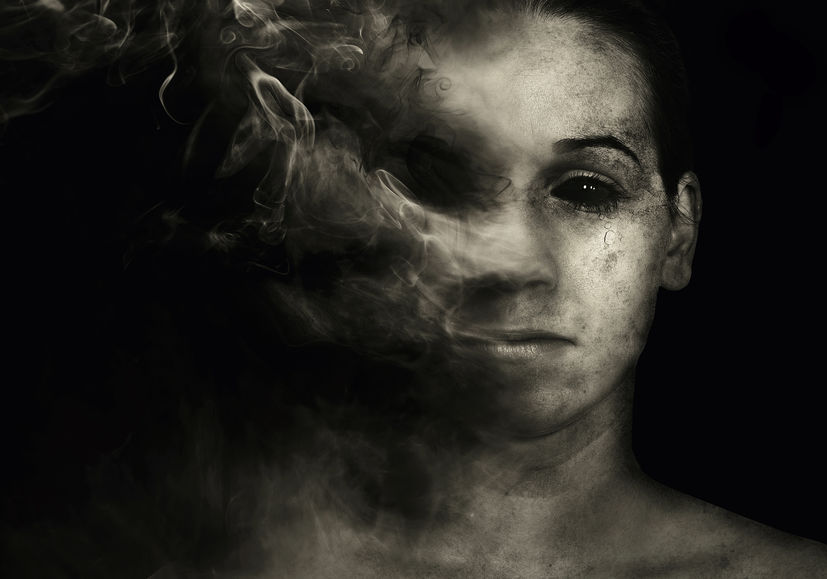Share the love, spread the word
It’s that time of the year of school presentation nights and final farewells for the Yr 12s, where schools across the country applaud the achievements of their hardest working or top performing students.
Sitting in the audience of my kids’ school, I marvelled at the magnificence of many, many kids and their achievements.
Among them were a significant number of girls, receiving Dux awards, full university scholarships and multiple academic awards.
There were plenty of high-achieving girls on that stage across all year levels, especially in the upper years so there’s no doubt that females are just as competent and intelligent as males. Which we already knew, right?
I thought of all that potential – all those girls filled with big dreams and goals for their future, especially those girls finishing Year 12 and about to head into the rest of their lives.
I remember being one of them, 29 years ago, confident, determined and laser-focused on where I was going, without any question in my mind that I would be able to achieve what I wanted.
Now as a parent watching my own daughter receive an award, I considered all the other parents of girls in that audience who also would be immensely proud of their daughters and who would share that sense of awe at their ability and potential.
Feelings no different from those of the parents of boys.
I have equal faith and belief in both my children – both my daughter and my son are bright, capable and decent humans who can undoubtedly achieve great things.
Yet I fear for my daughter and her future. This is despite the fact she is a high academic achiever, a hard-worker, a willing leader, responsible and mature thinker, an empathetic and kind soul, who has so much potential it’s blinding.
I hold in my heart a fear that she won’t be able to fulfill her dreams – that her potential will go unrealised in a society where the playing field isn’t equal.
I’ve never once had those thoughts about my son.
As I watched girl after girl walk across that high school stage to receive an award and congratulations on her achievements, I wondered how many of those young women would drop out of their careers?
How many would reach the potential they so obviously have, and how many would falter because it becomes too hard to fit all the pieces of the juggle together?
I wondered: when, exactly, does a girl’s potential disappear?
It’s not her qualifications
The statistics tell us girls outperform boys at school; that more young women enter university; and more of them graduate from university.
Australian Bureau of Statistics figures show us that participation rates for education are consistently higher among women; and that more women attain a Bachelor degree or above.
Yet, graduate starting salaries favour men in all fields of study but two, and in nine out of 13 industries.
According to a 2018 report by the Australian government’s Workplace Gender Equality Agency:
While more women than men graduate from higher education institutions and receive the same education as men, women continue to be undervalued in the majority of study fields and industries at the start of their career. The data confirms stark graduate and postgraduate gender pay gaps across the majority of study fields and industries in Australia. In economic terms, lower salaries mean that women receive lower rewards from investing in their tertiary education than men.Higher education enrolments and graduate labour market statistics, Workplace Gender Equality Agency
So perhaps a girl’s potential disappears once she has a degree in hand – once she’s out of education and into the workforce, where her potential is measured in wages or a position determined for her based on someone else’s opinion of her, and not an exam result she earned on a level playing field.
Certainly her career prospects and earnings fall off a cliff should she have children.
The motherhood penalty
The WGEA says the gender pay gap sky-rockets when a woman takes time off work to have children.
Her earning capacity, opportunity for career progression or even full-time employment all diminish once she becomes a mother.
Australian women are three times more likely than men to work part-time, as the burden of childcare and raising children falls disproportionately on women.
So perhaps a girl’s potential disappears when she becomes a mother.
Girls finish school well. They enter and graduate university; they have the same qualifications and therefore are equally educated (if not more so). They’re just as capable, and for all intents and purposes are equal in terms of qualifications.
Yet, they are paid less and once they have children, struggle to remain in full-time employment let alone in a career.
Even if there was perfectly equal pay, women would still earn less overall because there’s not a perfectly equal work playing field.
Women lose because they’re seen as the parent and job flexibility becomes her issue, not their issue – a joint issue between a mother and a father.
The gender pay gap won’t close until men are seen as equal parents and carers. As long as fathers are considered ‘helpers’ in raising children instead of an equal parent; and until they are also seeking flexible working arrangements or taking time out when children are young, inequality will prevail.
Women’s potential won’t be fully realised until our workplace structures and caring roles are no longer built around old-fashioned gendered stereotypes.
Nearly three decades since I finished high school with big dreams and a determined career-path, I know better.
I’ve lived gender inequality, the gender pay gap and the motherhood penalty.
I didn’t see any of them coming – I was a starry-eyed high achiever who couldn’t imagine anything getting in my way.
Our girls have just as much to offer as our boys do. This is in no doubt to those of us raising them. Their potential to do great things for our society is just as significant and important as the potential of the boys.
A level playing field post-education is needed so that all that potential doesn’t disappear and go to waste.
Listen in on the podcast:




